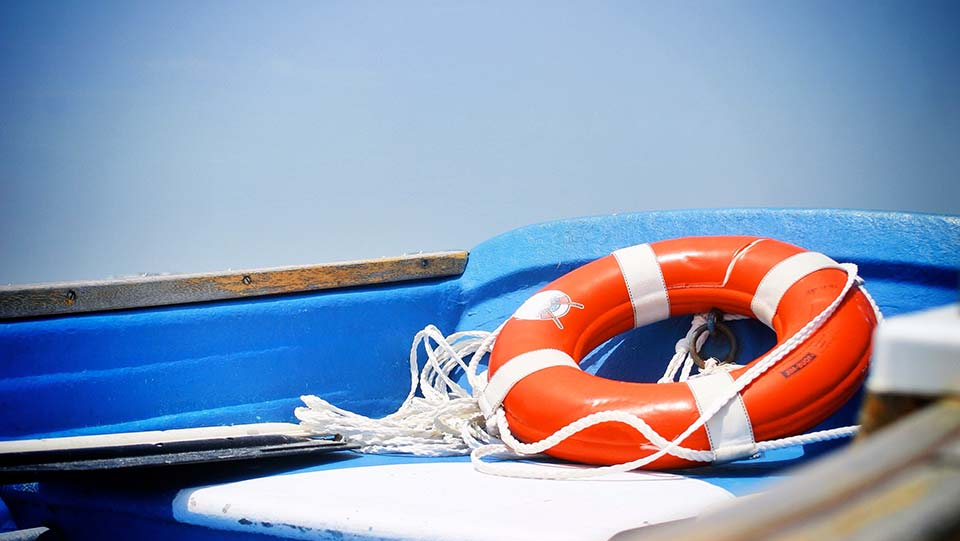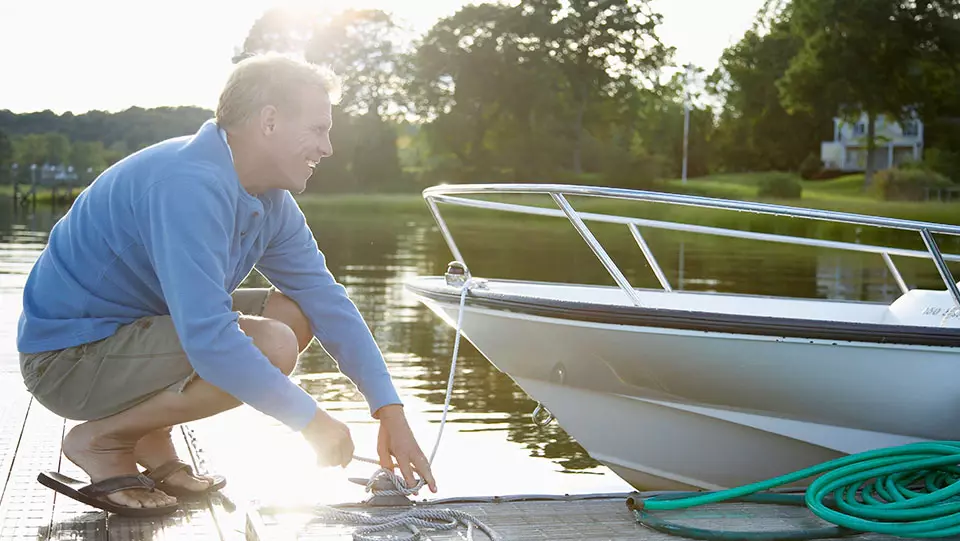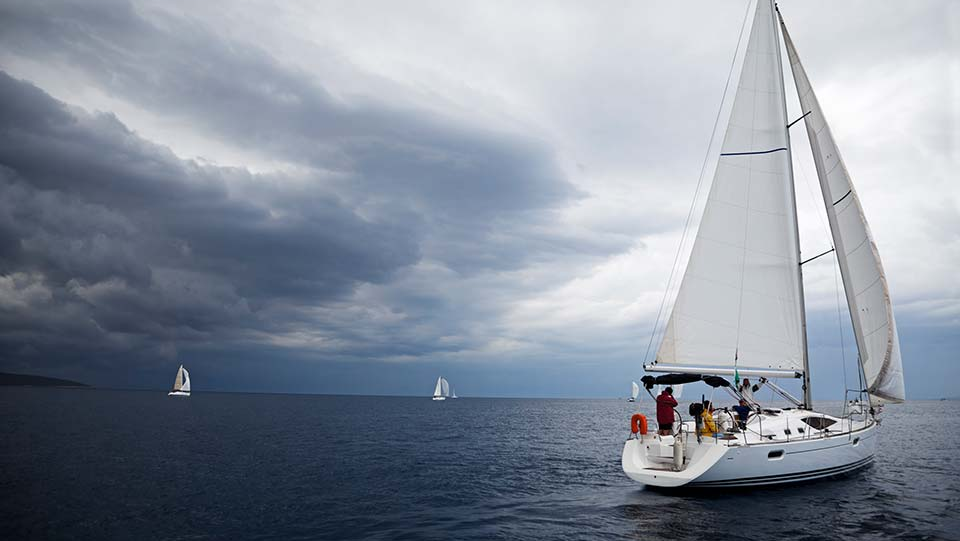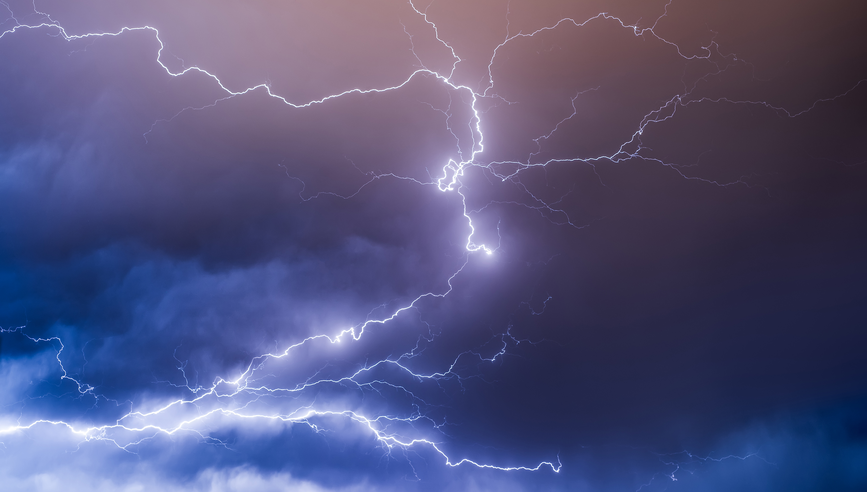Three of the Most Dangerous Boating Conditions

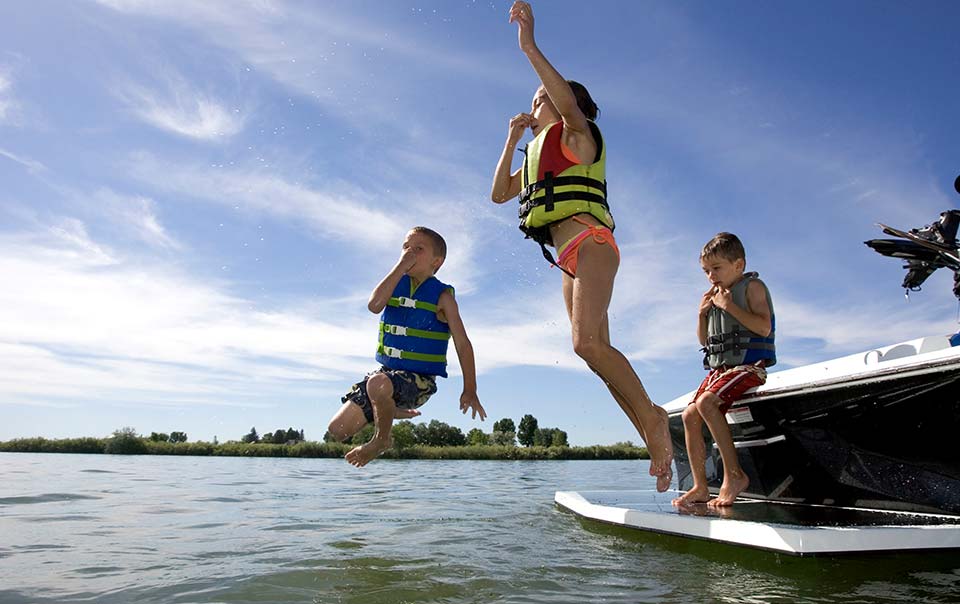
While spending time near water or on a boat can be an enjoyable way to spend a summer day, some dangerous conditions can exist if you are not properly equipped and prepared to deal with them. Three uncommon, and also avoidable, causes of serious injury include electrocution, being struck by a propeller, and carbon monoxide (CO) poisoning.
Dock Safety and Electricity
Many boat owners choose to keep their boats at a marina as opposed to mooring them. While marinas offer customers a number of amenities, such as water, cable and electricity to charge your boat’s battery or power lights and appliances, one of these perks can also lead to potential hazards. Did you know that stray electrical current from dock wiring or an electrical fault from a boat can energize the water creating an electrocution hazard? In this potentially dangerous situation, a person swimming nearby can become paralyzed by the electrical field and drown, referred to as Electrical Shock Drowning (ESD). Rescuers, when they enter the water, can suffer from the same paralyzing effects as the person they are trying to save. This type of hazard has been reported in fresh water marinas such as on lakes or rivers, but not salt water marinas. Presumably because salt water is a much better conductor of electricity and this can make it harder – but not impossible – for lethal voltage gradients to form.
To avoid this unpredictable and deadly hazard, do not swim or allow your passengers to swim from or near docks or boats where shore side electrical connections are provided. Other things that can be done to help minimize the risk of ESD include:
- Have all electrical work completed by marine electricians certified by the American Boat and Yacht Council (ABYC).
- When selecting a marina to tie up to long term, ask about their electrical inspection, testing and maintenance program, including procedures to minimize the risk of ESD.
- Promptly report to marina management evidence of chaffing cables, tripping of Ground Fault Circuit Interrupters (GFCI) or similar issues with the electrical system and dock pedestals.
Carbon Monoxide
CO is a poisonous gas that is a by-product of the gasoline/diesel engine combustion process. Carbon monoxide exposure is possible on any boat that is equipped with an engine or a generator, including outboard engines. Certain heating systems can produce CO gas as well. The gas is invisible and odorless and can be deadly without warning. For this reason, CO detectors are required by the American Boat and Yacht Council (ABYC A-24) to be installed on boats with enclosed accommodation compartments.
Other items to consider include:
- Purchase marine-grade CO detectors and look for the UL 1524 mark.
- CO detectors should be placed in any enclosed areas where people congregate or sleep.
- Recognize the symptoms of CO poisoning, which may include: dizziness, drowsiness, headaches, blurred vision and nausea. Please note that individuals do not have to exhibit all of these symptoms to suffer from CO poisoning.
- If anchored with or rafted together with other boats, be cautious about their engine and generator exhaust reaching your vessel.
- Carbon monoxide poisoning can occur outside of enclosed spaces, such as swim platforms, cockpits or fly bridges. Exposure can occur in a number of ways, including back drafting of exhaust when the boat is under way or if it is idling with the engine or generator running, or even when it is moving at slow speeds.
- It is advisable to keep engines turned off when at anchor or at the dock. If using a generator, ensure that the exhaust is properly vented and that all passengers stay away from the exhaust ports – especially those who are swimming near the boat.
- Be sure to inspect the exhaust system on your boat to ensure it is leak free, in good condition and properly connected.
- Make sure your exhaust ports are free and clear. Blocked ports can cause CO to back up and accumulate in the cabin or other areas of the boat.
Swimming and Propeller Safety
Boating and swimming go hand-in-hand. But before anyone gets in the water to enjoy some summer leisure, be sure the motor on your boat is turned off and the propeller has come to a complete stop. These tips can help your passengers stay safe while swimming near your boat.
- The engine should remain off when getting in and out of the boat or swimming near the boat. All passengers should be made aware of where the propeller is located.
- Before starting the engine make sure no one is in the water near your boat.
- If you have to approach someone in the water, do so head on. Do not approach in reverse. When you reach the person, turn off the engine before bringing them on board.
- Consider installing propeller guards.
- Be sure to wear your engine cut-off lanyard any time you are operating the boat.
- Stay alert for people in the water, especially when in an area with water-skiing, scuba diving (watch for diving flag), beaches or when near other boats at anchor, mooring or at dock.
